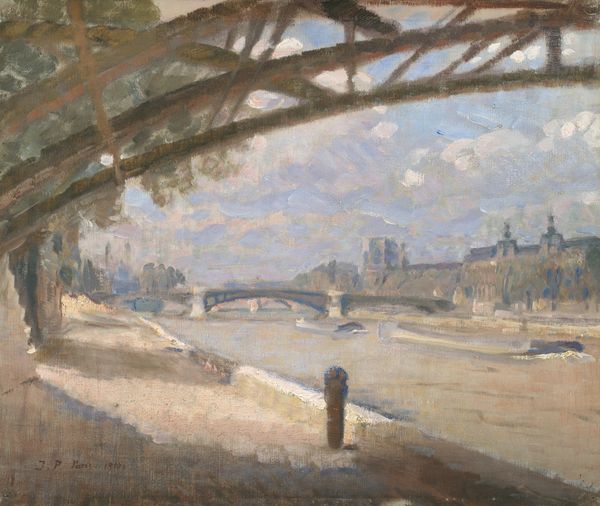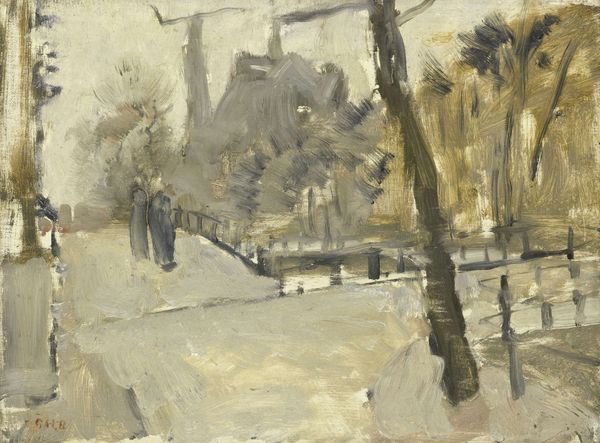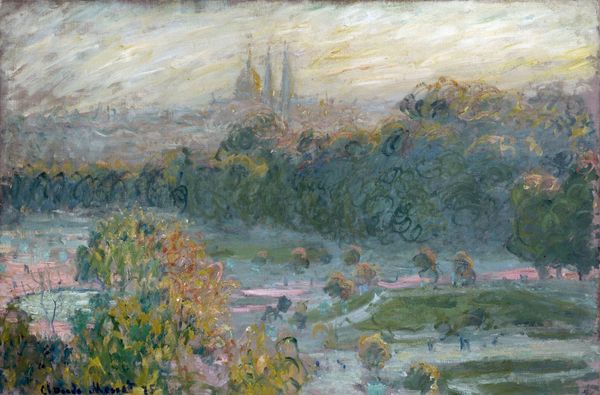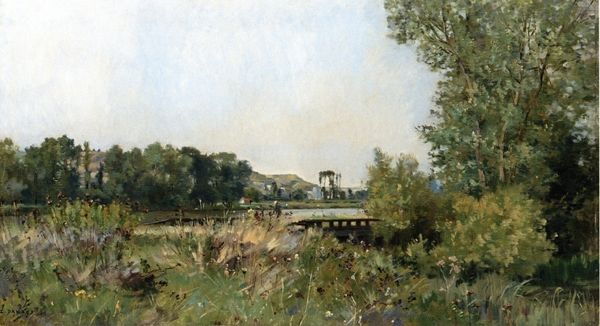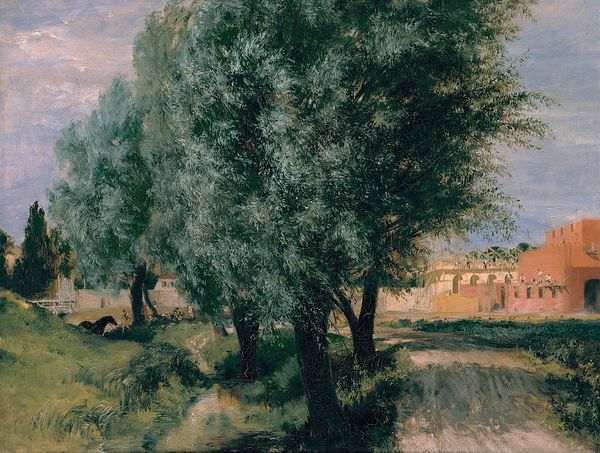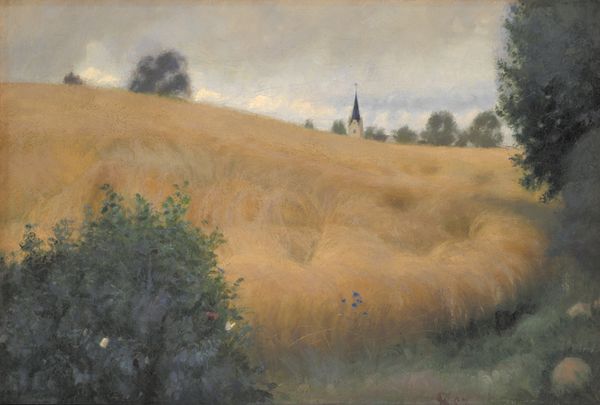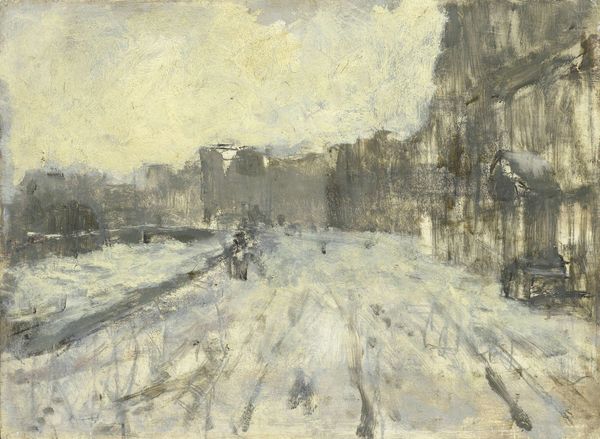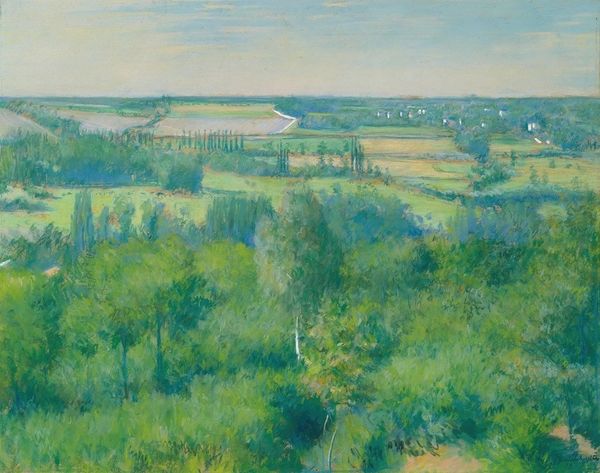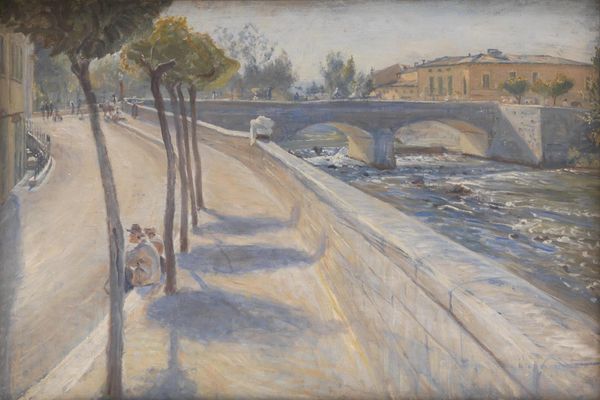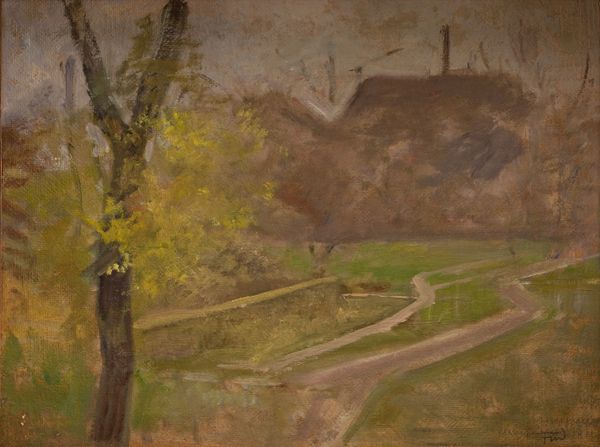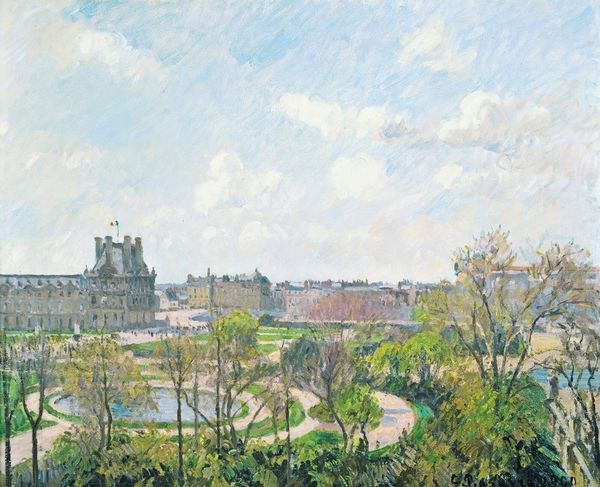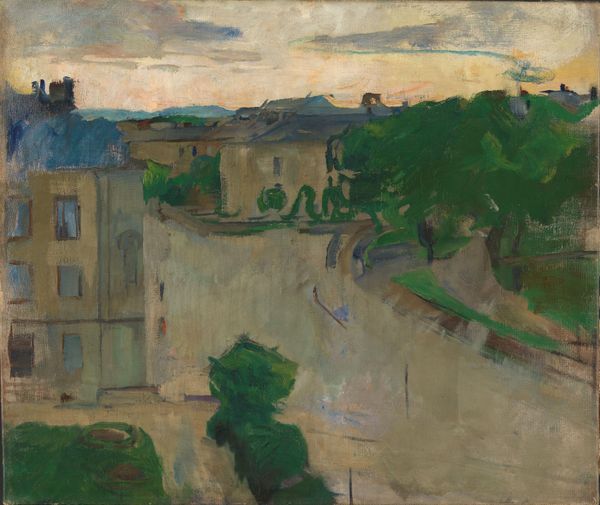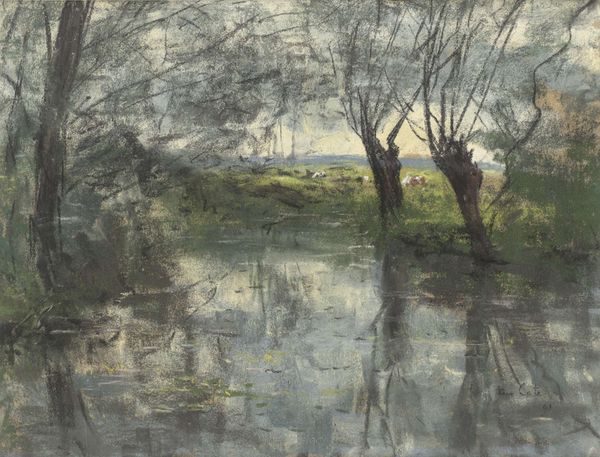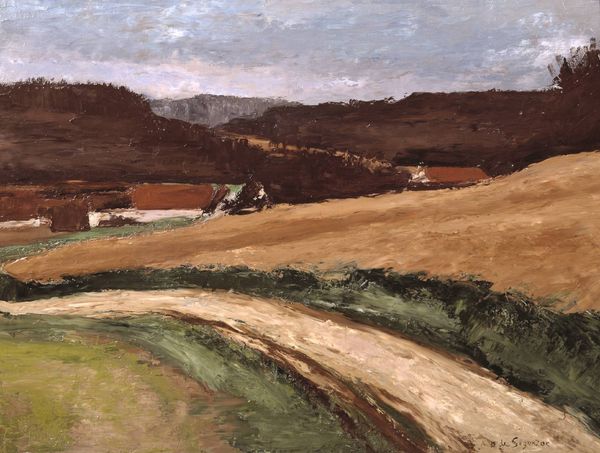
painting, plein-air, oil-paint
#
painting
#
impressionism
#
plein-air
#
oil-paint
#
landscape
#
oil painting
Copyright: Public Domain: Artvee
Curator: Looking at Claude Monet's "Le Pont d'Argenteuil," painted in 1875, one is immediately struck by its soft, almost melancholic atmosphere. Editor: It's certainly a muted palette, isn't it? Predominantly grays, greens, and creams, blended with incredibly loose brushstrokes. The bridge almost disappears into the atmospheric haze. Curator: Absolutely. But consider Argenteuil during this period; it was rapidly industrializing, transforming from a rural suburb of Paris into a bustling center connected by rail. This bridge, more than just infrastructure, becomes a symbol of transition. Editor: Semiotically speaking, that makes sense. The bridge acts as a signifier connecting, or perhaps contrasting, the natural foreground with the industrialized background. Though even the bridge's reflection dissolves into the river. Curator: Monet's choice to obscure it almost critiques the unbridled progress of industrialization and perhaps suggests the fading allure of nature under its influence. It acknowledges the environmental toll. Editor: Still, from a purely compositional perspective, observe how the vertical thrust of the bridge's supports creates a satisfying rhythm against the horizontal span. The blurred foliage, though unstructured, contributes a layer of depth and visual interest. Curator: And I'd argue those very strokes serve as social commentary. They mirror the disorienting and often chaotic impact of rapid societal change, capturing the emotional weight on the landscape. Editor: I can appreciate that interpretation. But, the way the light dances on the water below the bridge is undeniable. The loose brushstrokes render a sense of dynamism, an almost fleeting impression of a specific moment. Curator: Ultimately, this work encourages a multifaceted reflection: on industrial encroachment, environmental transformation, and their echoes in our own shifting societal landscapes. Editor: It's true; Monet captures a poignant duality between the static structure and ephemeral nature of existence itself. It offers an insightful view into his compositional mind.
Comments
No comments
Be the first to comment and join the conversation on the ultimate creative platform.
